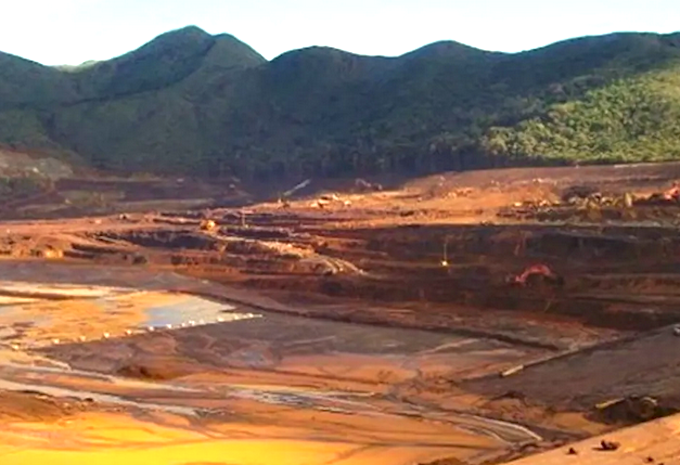By Patrick Decloitre, RNZ Pacific correspondent French Pacific desk
A South African company is reported to be the most probable bidder for shares in New Caledonia’s Prony Resources.
As part of an already advanced takeover of the ailing southern plant of Prony Resources, the most probable bidder is reported to be South African group Sibaneye-Stillwater, local new media report.
Just like the other two major mining plants and smelters in New Caledonia, Prony Resources is facing acute hardships due to the emergence of Indonesia as a major player on the world market, compounded with New Caledonia’s violent unrest that broke out in May.
Prony Resources has been trying to find a possible company to take over the shares held by Swiss trader Trafigura (19 percent).
The process was recently described as very favourable to a “seriously interested” buyer.
Citing reliable sources, daily newspaper Les Nouvelles Calédoniennes yesterday named South Africa’s Sibanye-Stillwater.
The Johannesburg-based entity is a significant player on the minerals world market (including nickel, platinum and palladium) and owns, amongst other assets, a hydro-metallurgic processing plant in Sandouville (near Le Havre, western France) with a production capacity of 12,000 tonnes per year of high-grade nickel which it bought in February 2022 from French mining giant Eramet for 85 million euros (NZ$153 million).
The ultimate goal would be, for the South African player, to become a leader on the production market for innovative electric vehicles batteries, especially on the European market.
Southern Province President Sonia Backès had already hinted last week that one buyer had now been found and that one bidder had successfully reached advanced stages in the due diligence process.
If the deal eventuated, the new entity would take over the shares held by Swiss trader Trafigura (19 percent) and another block of shares held by the Southern Province to reach a total of 74 percent participation in Prony Resources stock, as part of a major restructuration of the company’s capital.
Prony Resources, in full operation mode, employs about 1300 staff.
Another 1700 are employed indirectly through sub-contractors.
It has paused its production to retain only up to 300 staff, in safety and maintenance mode, partly due to New Caledonia’s current unrest.

New Caledonian consortium’s surprise bid for mothballed Northern plant
Meanwhile, a local consortium of New Caledonian investors is reported to have made an 11-hour offer to take over and restart activity for the now mothballed Koniambo (KNS) nickel plant.
The plant’s furnaces were placed in “cold care and maintenance” mode at the end of August, six months after major shareholder Anglo-Swiss Glencore announced it wanted to withdraw and sell the 49 percent shares it has in the project.
This caused close to 1200 job losses and further 600 among sub-contractors.
Other bidders still interested
KNS claimed at least three foreign investors were still interested at this stage, but none of these have so far materialised.
Talks were however reported to continue behind the scenes, with interested parties even ready to travel and visit on-site, KNS Vice-President and spokesman Alexandre Rousseau told Reuters news agency earlier this month.
‘Okelani Group One’
But a so-called “Okelani Group One” (OGO), made up of three local partners, said their offer could revive the project with a different business model.
They say they have made an offer to KNS’s majority shareholder SMSP (Société Minière du Sud Pacifique, New Caledonia’s Northern province financial arm).
OGO president Florent Tavernier told public broadcaster NC la 1ère much depended on what Glencore intended to do with the staggering debt of some US$13.7 billion which KNS had accumulated over the past 10 years.
Another OGO partner, Gilles Hernandez, explained: “We would be targeting a niche market of very high quality nickel used in aeronautics and edge-cutting technologies, especially in Europe, where nickel is now classified as ‘strategic metal’.”
Although KNS was designed to produce 60,000 tonnes of nickel a year, that target was never reached.
OGO said it would only aim for 15,000 tonnes per year and would only re-employ 400 of the 1200 laid-off staff.
New Caledonia’s third nickel plant, owned by historic Société Le Nickel (SLN, a subsidiary of French mining giant Eramet), which is also facing major hardships for the same reasons, is said to currently operate at minimal capacity.
This article is republished under a community partnership agreement with RNZ.










































